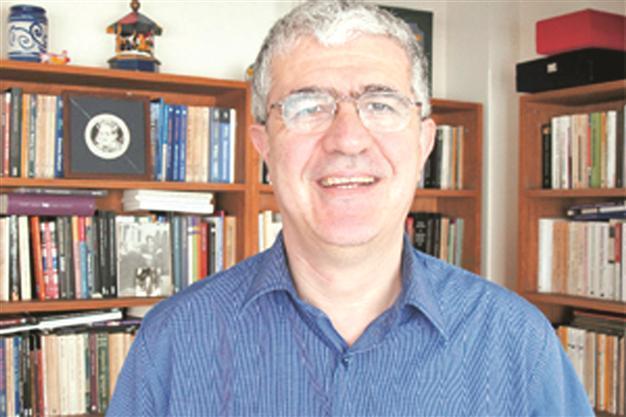Turkish poet Edip Cansever’s verses become latest victim of censors
ISTANBUL

Turkish Publishers Association President Metin Celal Zeynioğlu says the repressive practices of the reign of the Ottoman sultan Abdülhamit are about to be repeated.
Two verses of the poem “Table,” which was written by renowned Turkish poet Edip Cansever, were omitted from high school books since they include the word “beer.”
The books, published by Ekoyay Publishing House, were selected to be read in high schools by the National Education Ministry. The omitted verses are as follows: “So many days he had wanted to drink a beer! He put on the table the pouring of that beer.”
Recently chants written by Turkish folk poets Yunus Emre and Kaygusuz Abdal were also omitted from course books, while French-Lebanese writer Amin Maalouf’s historical novel Samarkand was investigated for allegedly “being vulgar and insulting Islam.”
There was an attempt ban certain parts of John Steinbeck’s classic “Of Mice and Men” due to “immoral” passages, and an investigation was launched into “My Sweet Orange Tree” by Brazilian writer José Mauro de Vasconcelos on the same grounds.
“Formerly we were able to follow the [proceedings of] the books that were banned or withdrawn from stores since [the censors and bans] were based on legal grounds, but now it is very hard to follow all the censorship as [the proceedings] are performed through the regulations of the National Education Ministry. They are trying to localize censorship, and it is extremely dangerous to implement them in schools,” Turkish Publishers Association (TYB) President Metin Celâl Zeynioğlu told the Hürriyet Daily News.
“The books in school libraries are supervised by a commission formed by the National Education Ministry; they have the authority to determine which books can be read by students,” Zeynioğlu said.
‘Intention is evident’According to Zeynioğlu, the repressive practices of the reign of Ottoman Sultan Abdülhamid, and the incidents that took place during the 1980 military coup are about to be repeated.
“Their intention to ban these books is evident. How can one think that a student might become alcoholic when he sees the word ‘beer?’” Zeynioğlu said.
Zeynioğlu also said neither publishing houses nor the ministry had the right to censor literary works. “It is clearly stated in the Law on Intellectual and Artistic Works. Reading censored works prevents younger generations from learning about authors and poets. It constitutes a criminal offense both legally and morally,” Zeynioğlu said.
Meanwhile, PEN Turkey head Tarık Günersel said publishing censored works was unacceptable and legal cases must be filed against such activities.
Turkey is on the blacklist of PEN International, according to Günersel. “Unfortunately, bigotry dominates over our intellectual and artistic activities. PEN International has to deal with such problems all over the world, especially in countries such as Turkey, China, Ethiopia, Saudi Arabia, Iran and North Korea, where repression is intensely felt,” Günersel said.
